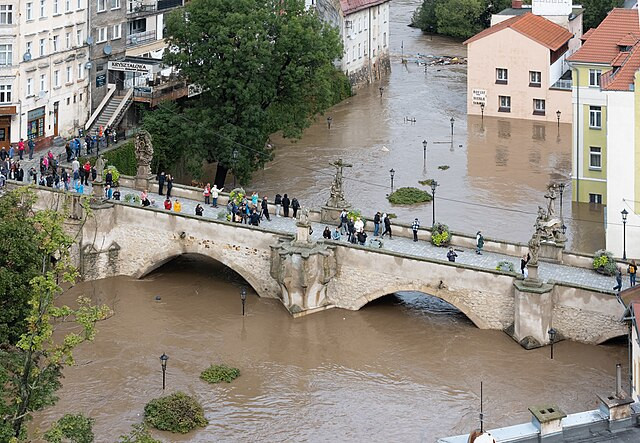Central Europe is in the grip of its worst flooding in years, with the death toll rising as rivers continue to swell and cities scramble to protect themselves. At least 19 people have lost their lives as floodwaters inundate vast areas across Poland, the Czech Republic, Hungary, Slovakia, Austria, and Romania. The region has been hit by relentless rainfall, which has caused rivers to burst their banks, devastating historic towns, collapsing bridges, and destroying homes.
The Polish city of Nysa, home to over 40,000 residents, has become a focal point of the disaster. Volunteers and rescue workers have been working around the clock to shore up defenses, heaving sandbags to reinforce a broken embankment. Military helicopters have been deployed to assist in the operation, dropping sandbags to seal off vulnerable areas. Despite their efforts, the threat remains grave, and many residents are fearful of looters in the aftermath of evacuations.
Poland's Prime Minister, Donald Tusk, has declared a state of disaster in the affected regions and pledged 1 billion zlotys ($260 million) in aid for flood victims. He also assured residents that authorities would act "ruthlessly" against those attempting to exploit the situation. "We are afraid... because we are already hearing that looters have become active," said Sabina Jakubowska, a resident of Nysa, expressing the community's concerns.
In Wroclaw, Poland's third-largest city, authorities are bracing for the Oder River to peak. Emergency services are on high alert, with evacuation plans in place and further reinforcements being made to embankments. The city's zoo has called for volunteers to help protect animal enclosures, while employees and volunteers have begun moving the 450,000 books stored in the city's main church archive to higher ground.
The flooding has not spared the neighboring Czech Republic, where the northeast regions of Moravia and Silesia have been among the hardest hit. The government has evacuated 15,000 people from these areas, and helicopters are delivering aid to communities cut off by the rising waters. The Czech government has approved the deployment of 2,000 troops to assist in clean-up efforts, with the damage in the region expected to reach tens of billions of crowns (over $1 billion).
Further south, Hungary is also on high alert as the Danube River threatens to flood its capital, Budapest. Soldiers and volunteers have been working tirelessly to reinforce riverbanks with sandbags, and the lower quays of the city have already been closed off. Authorities are preparing for the Danube to reach near-record levels, with historic towns like Visegrad and Szentendre also under threat.
Slovakia, too, is grappling with the consequences of the swollen Danube. The river peaked at nearly 10 meters overnight, and although water levels are now slowly receding, the damage is extensive. Environment Minister Tomas Taraba has estimated the flood damage across the country to be around 20 million euros.
As Central Europe battles the rising waters, the economic toll is becoming increasingly evident. Credit rating agency Morningstar DBRS has estimated the losses from the flooding to be between several hundred million euros and more than one billion euros ($1.1 billion) across the region. The impact on infrastructure, homes, and businesses is vast, and the recovery process is expected to be long and arduous.
In Austria, Romania, and other parts of the region, the situation remains dire. The flooding has caused widespread disruption, with tens of thousands of households still without power or fresh water. The threat of further flooding looms large as rivers continue to rise, and the region remains on high alert.
The people of Central Europe are enduring one of the most challenging natural disasters in recent memory. With communities banding together to protect their homes and loved ones, the resilience of the human spirit is on full display. However, as the waters continue to rise, the full extent of the damage and loss remains to be seen, and the road to recovery will be long and difficult.




